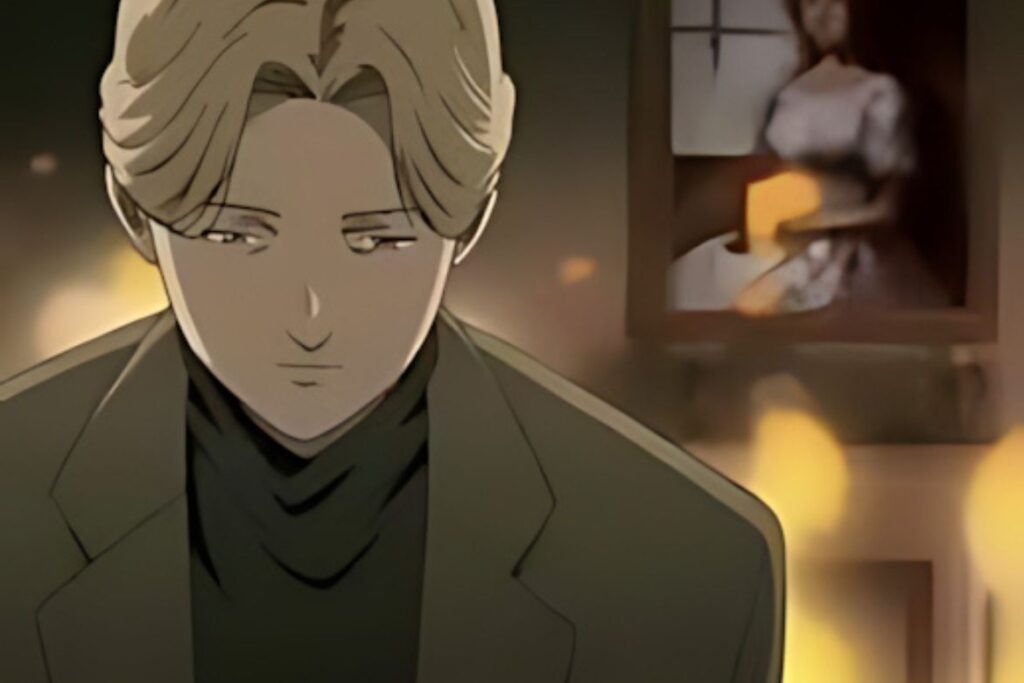Table of Contents
Monster by Naoki Urasawa is revered as a psychological thriller masterpiece, largely due to its unforgettable antagonist, Johan Liebert. Johan is no ordinary villain; he’s a character who explores the depths of human darkness and embodies pure terror. This article dives into every facet of Johan Liebert, from his personality and motivations to his chilling impact and why he remains so iconic among anime fans.
Introduction to Johan Liebert

In Monster, the story follows Dr. Kenzo Tenma, a talented neurosurgeon in Germany who becomes entangled in a nightmare after choosing to save the life of a young boy, Johan Liebert, over a high-profile politician. This moral decision triggers a chain of horrific events as Johan grows up to be a master manipulator and terrifying killer. Johan’s character stands as a milestone in anime, setting a high standard for villains in psychological dramas and mysteries.
Johan Liebert’s Tragic Backstory and Origins

Johan’s early life is shrouded in trauma. Raised in an orphanage that experimented on children to create “superior” beings, Johan endured severe mental and emotional abuse that would later define his personality. This haunting past fuels his detachment from humanity and makes him a merciless, calculating figure. His connection to his twin sister, Anna (also known as Nina Fortner), is central to his story. Johan orchestrated a series of brutal events, separating them and drawing her into his twisted plans. These experiences cemented his nihilistic worldview, where he views people as pawns in a game he meticulously controls.
| Read More Interesting Articles About “Monster” |
Johan Liebert’s Chilling Personality

Johan Liebert is defined by his calm, calculated nature, blending charm with an icy demeanor that masks his terrifying inner self. Key traits of his personality include:
- Intelligence and Charisma: Johan is highly articulate and persuasive, drawing people to him with ease. His intelligence allows him to stay steps ahead of others, calculating every move to ensure his plans unfold seamlessly.
- Nihilism and Emptiness: Johan views life as fundamentally meaningless. This bleak perspective drives him to inflict chaos and despair on others, finding satisfaction in watching people unravel.
- Master Manipulator: He excels at controlling others, often persuading them to act against their own interests or pushing them toward self-destruction, making his influence seem supernatural despite being purely psychological.
Understanding Johan Liebert’s Power

While Johan possesses no supernatural abilities, his “power” lies in his psychological manipulation and acute understanding of human nature. He’s an unparalleled master of persuasion, finding and exploiting the deepest fears and vulnerabilities of those around him. His strength comes from his intelligence, his control over his emotions, and his lack of empathy, which make him a powerful, unpredictable force. Johan’s influence is chilling because it feels disturbingly realistic—a horror rooted in human psychology.
Johan Liebert as the Embodiment of the ‘Monster’

Johan is not merely a person; he’s the manifestation of the “monster” within humanity. His actions force people to confront the darkest parts of themselves, pushing them to the edge of morality. Johan symbolizes the idea that everyone harbors monstrous potential, capable of unfathomable acts. His role as an “empty” being allows him to become whatever his victims need him to be to manipulate them, making him the perfect embodiment of psychological horror.
Major Events and Arcs that Define Johan Liebert

- Dr. Tenma’s Decision: Johan’s story begins with Dr. Tenma’s choice to save his life over a politician’s, a decision that haunts Tenma as Johan’s body count rises.
- Key Manipulations: Johan orchestrates chaos without ever directly involving himself, often manipulating entire groups, including orphans, murderers, and even young children, to carry out his twisted plans.
- Clashes with Dr. Tenma: The confrontations between Tenma and Johan serve as philosophical battlegrounds where Tenma’s belief in the sanctity of life meets Johan’s nihilistic worldview.
Exploring Johan Liebert’s Philosophy and Motivations

Johan’s motivations stem from his nihilistic perspective, which sees life as void of meaning or inherent value. Rather than seeking traditional power or control, he’s more interested in testing the limits of human morality, examining the darkness within people, and observing their reactions under extreme pressure. His obsession with chaos and death reveals his twisted philosophy—life, in his eyes, holds no value, and he constantly searches for proof that others share in his darkness. Johan’s quest for absolute nothingness is seen in his desire to erase his identity and exist in a world “with no one left,” reflecting a longing to understand the void within himself.
Why Johan Liebert is So Popular Among Anime Fans

Johan’s popularity arises from his unconventional role as a villain who relies on intellect rather than physical strength or supernatural power. Anime fans find his calm, unassuming demeanor combined with his ruthless nature highly compelling, as it evokes real-world fears rooted in manipulation and psychological terror. Johan also challenges audiences by raising existential questions about human nature and morality, making him not just a character, but a philosophical figure.
The Final Killings: Why Does Johan Liebert Kill People in the End?

At the end of Monster, Johan’s killing spree represents the culmination of his worldview—a final assertion of his belief in life’s worthlessness. His acts of murder are not random; they are his way of demonstrating his power over people’s fragility and his philosophical belief that life holds no inherent meaning. By driving people to destruction, Johan reinforces his twisted sense of control and the nihilism that defines him.
What Does Johan Liebert Want?

Johan’s true desires remain elusive, but he appears to be searching for a form of validation for his nihilistic beliefs. He wants to see that others share in the emptiness he feels and that they, too, possess a “monster” within. His need to drive people toward self-destruction reveals his quest to prove that humanity is inherently flawed, confirming his view that life is devoid of purpose or worth.
How Johan Liebert Manipulates His Victims

Johan’s manipulation is rooted in his deep understanding of trauma and human psychology. He studies his targets carefully, pinpointing their fears, insecurities, and desires. Then, with calculated words and actions, he plants seeds of fear, anger, or self-doubt, convincing people to act against their own best interests or even to commit horrific acts themselves. Johan’s talent lies in making his victims feel as though they’re acting on their own free will, though they’re following his carefully laid plans.
Why Johan Liebert is an Iconic Villain

Johan Liebert’s uniqueness as a villain lies in his philosophical depth and his unshakable calm. He doesn’t follow typical villainous motives like power or revenge; instead, he’s driven by an existential emptiness that makes him one of anime’s most haunting figures. His presence forces characters—and audiences—to confront unsettling questions about the nature of evil, identity, and humanity. Johan’s influence as a villain has cemented his place in anime history, and his character continues to fascinate fans, scholars, and creators.
Conclusion
Johan Liebert in Monster represents the pinnacle of psychological terror, a character that challenges conventional notions of good and evil. Through his character, Monster explores complex themes like identity, morality, and the hidden monstrosity within humanity. His composed yet terrifying persona, his ability to manipulate, and his profound philosophical undertones make him an unforgettable antagonist, leaving a lasting impact on anyone who encounters this dark masterpiece.